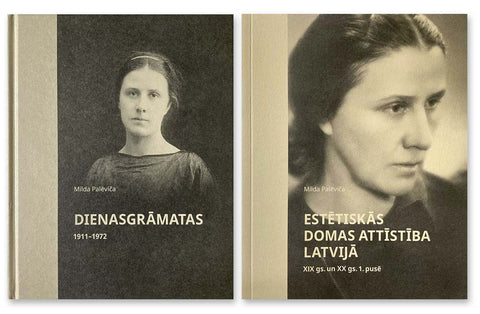
November Sale
Only in November the encyclopaedic publication "People and Events in Latvian Lands from the Leaving of Ice to Latvian State" is available for a special price - 29 EUR (before 40 EUR).
The book is a comprehensive chronological and encyclopaedic overview of the events in the cultural space of Latvia over ten centuries. It begins with the time when ice melted in Baltic lands till 1918 when the Republic of Latvia was proclaimed.
More: People and Events in Latvian Lands from the Leaving of Ice to Latvian State

Selection of poetry by Vasko Popa
Vasko Popa (1922–1991) was one of the most brilliant Yugoslav poets of the second half of the 20th century, with a unique, idiosyncratic poetics that gained recognition not only in his homeland, but also in the international literary world.
“Vasko Popa is generally regarded as an innovator of post-war Yugoslav poetry, however strange it may be to call a poet whose work has such a strong timeless, mythical, even archaic dimension. Folkloric motifs, dark humour and the discoveries of twentieth-century modernist movements, in laconic expression, have synthesised in his work into a vividly individual poetics. The corpus of Vasko Popa’s works is a book written for a lifetime – a body that is coherent in content and form, albeit with apparent internal development and unexpected turns,” says the translator Arvis Viguls.
The publication continues the black poetry series of Neputns, which presents works by modernist and contemporary poets from different countries.
Supported by: State Culture Capital Foundation, programme "KultūrELPA"

Neputns presents a selection of books to art schools
Thanks to the schools of art and music, the doors to a more varied and enriched life is opening again and again for each new generation. It is on the schools of art and music that the foundation of our cultural space is built. To ensure that schools are aware of our contribution to this cultural space, Neputns is donating a small selection of books to all art and music schools in Latvia.
"Music and art are wonderful parallel worlds to everyday life, and it is important for people to learn about them as early as possible. This is important for the development of each personality and for the strength of our country's spiritual foundation. The more we know about the artistic values that have been accumulated before us and are being created around us today, the less alone we feel in our path and choices." (Laima Slava, Editor-in-Chief of Neputns)

Poetry Day award goes to Ivars Šteinbergs
The annual Poetry Day award winner is Ivars Šteinbergs. The award was given for his debut collection of poems "Beehive".
Ivars Šteinbergs, born in 1991, is a Latvian poet, translator of poetry, and a journalist. Since 2012, he has been writing poems, translating and interviewing writers for various outlets – online platforms and literary magazines. In 2017, he received a Fulbright Scholarship to study Comparative Literature in the State University of New York at Binghamton.

For the first time the "Diaries" and "The Development of Aesthetic Thought in Latvia" by Milda Palēviča have been published
Milda Palēviča's diary entries cover the period from 1911 to 1972, while her essay "The Development of Aesthetic Thought in Latvia" was written in 1960. Both texts are being published for the first time.
Milda Palēviča (1889–1972) was the first graduate doctor of philosophy, a pioneer of aesthetics as an academic discipline in Latvia, and a representative of liberal feminism. She received her doctorate in philosophy from the Sorbonne University in Paris (1925), and taught at the Latvian Conservatoire and the Art Academy. However, for various reasons, her place in the history of ideas has not been marked, nor has there been any recognition of her achievements.
"Diaries" of Milda Palēviča, the daughter of the prominent educator Indriķis Palēvičs, which she wrote throughout her life, testifies to the arduous journey of a determined, talented woman towards the knowledge she sought, without shying away from the often dramatic challenges of her personal and professional life.
Supported by: State Culture Capital Foundation
Buy: Milda Palēviča "Diaries" and "The Development of Aesthetic Thought in Latvia"